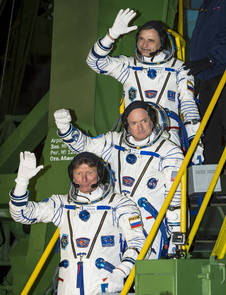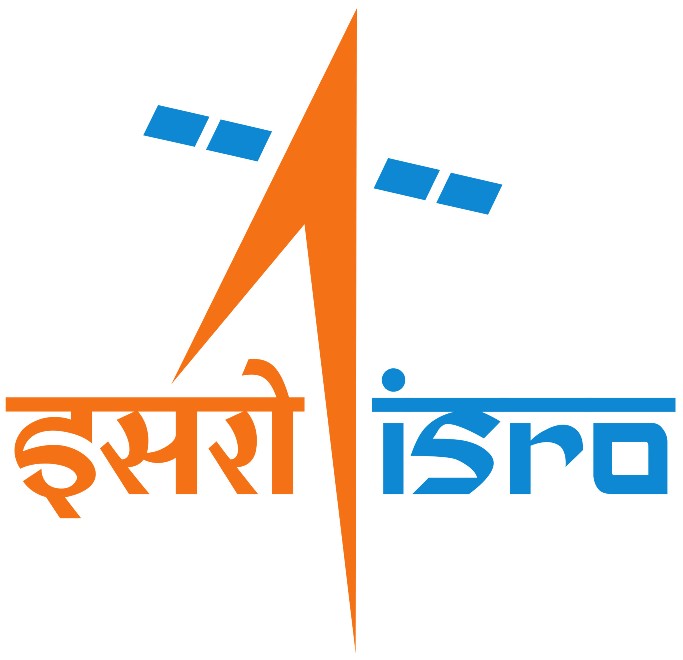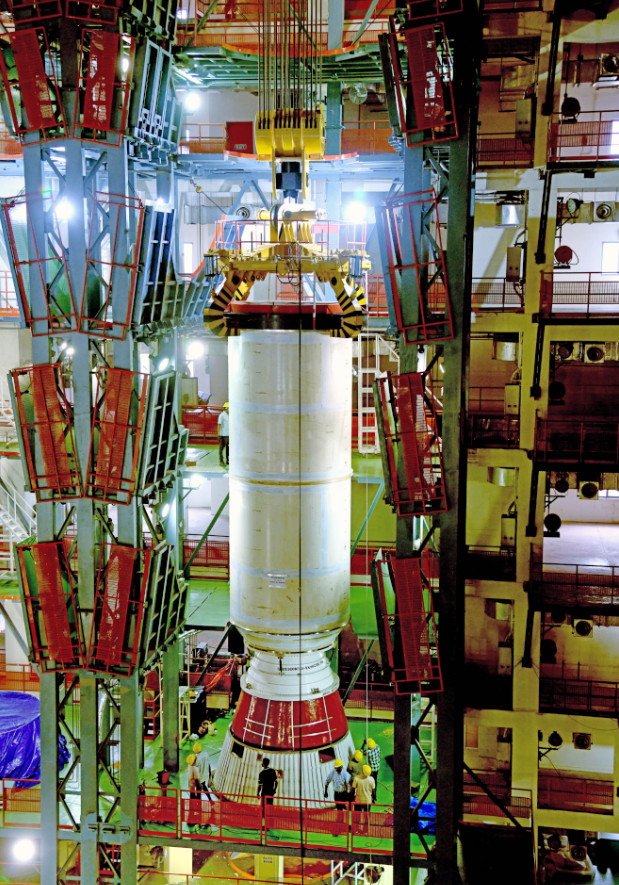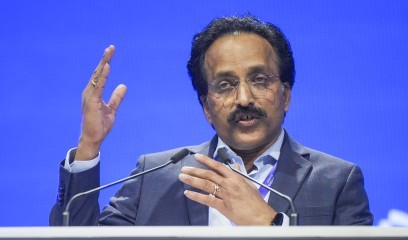
Expedition 43 crew members Mikhail Kornienko of the Russian Federal Space Agency (Roscosmos), top, NASA astronaut Scott Kelly, center, and Gennady Padalka of Roscosmos wave farewell as they board the Soyuz TMA-16M spacecraft ahead of their launch to the International Space Station. Image Credit: NASA/Bill Ingalls
BAIKONUR, KAZAKHSTAN (AP): Two Russians and an American floated into the International Space Station Saturday, beginning what is to be a year away from Earth for two of them.
Mikhail Kornienko and Scott Kelly are to spend 342 days aboard the orbiting laboratory, about twice as long as a standard mission on the station. Russia's Gennady Padalka is beginning a six-month stay.
The three astronauts entered the station about eight hours after launching from Russia's manned space facility in Kazakhstan. They were embraced by American Terry Virts and Russia's Anton Shkaplerov who along with Italian Samantha Cristoforetti have been aboard since late November.
The trip is NASA's first attempt at a one-year spaceflight; four Russians have spent a year or more in space, all on the Soviet-built Mir space station.
The stay is aimed at measuring the effects of a prolonged period of weightlessness on the human body, a step toward possible missions to Mars or beyond.
Kelly's identical twin Mark, a retired astronaut, agreed to take part in many of the same medical experiments as his orbiting sibling to help scientists see how a body in space compares with its genetic double on Earth. They are 51.
Kelly and Kornienko, 54, will remain on board until next March. During that time, they will undergo extensive medical experiments, and prepare the station for the anticipated 2017 arrival of new US commercial crew capsules. That means a series of spacewalks for Kelly, which will be his first.
The two men also will oversee the comings and goings of numerous cargo ships, as well as other Russian-launched space crews and an expected September visit from singer Sarah Brightman on a "space tourist" trip.
Doctors are eager to learn what happens to Kelly and Kornienko once they surpass the usual six-month stay for space station residents.
Bones and muscles weaken in weightlessness, as does the immune system. Body fluids also shift into the head when gravity is absent, putting pressure on the brain and the eyes, impairing vision for some astronauts in space.
The yearlong stint will allow doctors to assess whether such conditions are aggravated by a long spell in space or whether they reach a point of stasis or even taper off.
As space officials look to longer missions, the International Space Station's future appears ensured until at least 2024.
 Previous Article
Previous Article Next Article
Next Article











The Indian Air Force, in its flight trials evaluation report submitted before the Defence Ministry l..
view articleAn insight into the Medium Multi-Role Combat Aircraft competition...
view articleSky enthusiasts can now spot the International Space Station (ISS) commanded by Indian-American astr..
view article